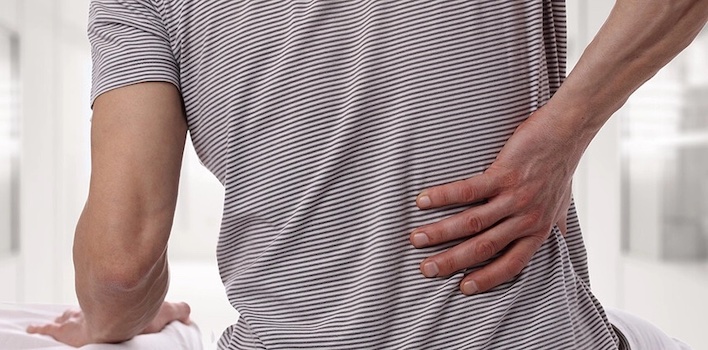
You can be fanatical about your diet and exercise and still end up with back pain as you get older. One reason for back pain is that accidents happen. You may get in an auto accident or suffer a sports injury and damage the tissues in your back.
But acute injuries aren’t the main reason back pain is normal as you get older. Lower back pain is common because you can’t prevent degenerative changes as you get older.
Arthritis
The bones that form the facet joints between your vertebrae are protected by a layer of cartilage. Unfortunately, the cartilage gradually breaks down over the years of bending and twisting. As the cartilage wears away, bones in the joint grind together when you move, causing back pain and stiffness. That’s when you have arthritis.
Inflammation also develops in the joint, triggering a cascade of events that further damage the underlying bone. Additionally, your body tries to overcome the problem by growing extra bone, creating bone spurs that add to your pain by pushing against nearby nerves. Getting early arthritis management helps to alleviate the pain, delay arthritis progression, and keep you moving.
Degenerative Disc Disease
Most people have some disc degeneration by the time they’re 60 years old. Vertebral discs are made of a tough outer covering that encloses a gel-like substance. This combination of tissues allows discs to absorb shock and keep your back flexible.
Your discs are 80% water at the start of your life. Over the years, they naturally dehydrate, and as they dry out, they become thinner, less resilient, and fail to support your back.
Your normal daily activities also contribute to degenerative disc disease as they cause small tears in the outer covering. This combination of dehydration and damage to the outer layer is known as degenerative disc disease.
Herniated Discs
Herniated discs occur when the gel-like center of a disc pushes out through a weak spot or tear in the outer covering. A bulging disc can press against the nearby nerves. If the herniated disc ruptures, its contents flow over the nerves, causing irritation and inflammation. Herniated discs can develop because of an injury, but they’re most often the result of disc degeneration.
Spinal Stenosis
The nerves that communicate between your brain and body travel through the spinal canal, which is formed by an opening in the center of the vertebrae. Spinal stenosis occurs when that opening becomes more narrow than normal. Herniated discs, degenerative disc disease, and bone spurs are the top causes of spinal stenosis.
The ligaments supporting your spine also naturally thicken as you get older. In some cases, they become large enough to protrude into the spinal canal.
Like all degenerative conditions, spinal stenosis primarily causes pain when nerves become pinched and inflamed.
Tips For Lowering Your Risk of Age-Related Back Pain
It’s never too late to begin a lifestyle regimen that can delay age-related problems and help relieve any existing pain. These are the top two steps to take:
Maintain A Healthy Body Weight
Excess weight puts more pressure on your lower back, which, in turn, accelerates tissue degeneration. You may not realize that every pound of body weight adds four pounds of pressure when you walk and eight pounds when you run. Your back will thank you when you reduce the pressure.
Stay Physically Active
Staying active is important for keeping your back strong and lowering your risk of age-related pain. But if you’re already in pain, it’s hard to stay active. We can help you with that conundrum. Drawing from the many interventional treatments we offer such as nerve blocks, epidural injections, and spinal cord stimulation, we’ll develop personalized therapy that reduces your pain so you can engage in an exercise program.
When the cause of your back pain is degenerative disc disease or a herniated disc, we may recommend regenerative medicine treatments such as platelet-rich plasma (PRP) injections. PRP stimulates healing that may help the disc repair itself.
Precision Pain Care and Rehabilitation has two convenient locations in Richmond Hill – Queens and New Hyde Park – Long Island. Call the Queens office at (718) 215-1888, or (516) 419-4480 for the Long Island office, to arrange an appointment with our Interventional Pain Management Specialist, Dr. Jeffrey Chacko.













